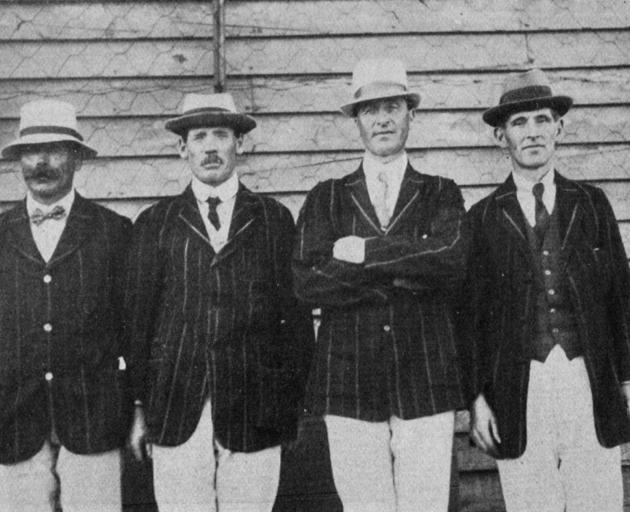
Easter is also a time at which there is extensive catering for the tastes of those who follow "sport" in the more restricted sense of horse racing. And thereby hangs a theme for seasonable moralisation. The times are reputed to be hard in the sense that everything has become exceedingly costly.The cost of living is unprecedentedly high. The currency is depreciated. Complaint regarding the difficulty of making both ends meet is general, and he would be hailed as an individual of singular experience who would deny the justice of it. In the circumstances an unsophisticated person might imagine that our population would be giving some outward evidence of a measure of impecuniosity, and that it might have been found gazing somewhat wistfully at the shop windows in which the Easter attractions were dressed. He would hardly have expected to learn that the amount of loose cash available for speculation was so large as the records show it to have been. The race meetings of the last few days have furnished a fair test of the money- spending powers of a large section of the people. All over the country there has been evidence of an abundance of money for betting purposes, and the totalisator investments, which have been increasing steadily in volume for the last year or two, far from now showing any decline, have been soaring to the attainment of fresh records. The fact remains that at a time when the struggle for existence, owing to the vastly increased cost of living, is supposed to have become more of less acute in New Zealand as elsewhere, indisputable evidence is offered of what seems to be an even enhanced spending power on the part of that section of the community by which the race meetings are attended. But the persons who throng the racecourses and form the queues in front of the totalisator windows are not drawn solely or even mainly from what may be called the moneyed classes. They are representative of all classes of society and of all callings and occupations. The growth of the totalisator investments and the popular discontent over the depreciation of the currency are things which are somewhat incompatible, nor is any explanation of their co-existence that suggests itself of a highly satisfactory nature.
Rabbit factory bonus for Waipiata
The township of Waipiata, on the edge of the Maniototo Plain, is a very busy place at present. The rabbit factory which was opened some 12 months ago is now a thriving institution, putting through some 10,000 rabbits a day. About 60 men are employed in the works canning rabbits and preparing them for canning. Four or five powerful motor lorries scour the plain picking up rabbits off the fences where the rabbiter has placed them. They run as far as the Styx, some 30 miles down the plain. An up-to-date motor garage has been added to the company's plant and in the event of a breakdown in any of the lorries, a motor cyclist mechanic is soon winging his way out to repair it. The local factory is paying out £500 a day for rabbits, and the wages bill is £1500 a fortnight. Truly, the rabbit has made a wonderful change in the township of Waipiata. — ODT, 7.4.1920












